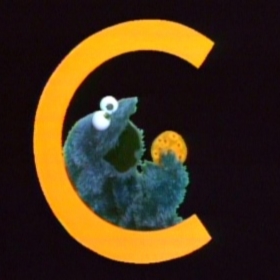Deictic Timing

There are A LOT of time expressions. Much too many to review in only one article. In this instalment in our series on time we will limit ourselves to looking at deictic time expressions.
A deictic term is anything which is dependent on context for its meaning. Here does not mean the same thing in New York as it does in Sauðárkrókur, and yesterday's tomorrow is today right now but it will be yesterday tomorrow. Deictic expressions are the most common of the time expressions.
Deictic timing expressions can be definite or indefinite. The definite ones are not up for interpretation: tomorrow is a twenty-four hour span of time, no two ways about it. The indefinite ones are up for interpretation: geological early may be thousands of years while a menstrual late may be only a few days.
First we'll look at the definite deictic timing expressions in descending order of scale, and then the indefinite deictic timing expressions.
Idiomatic Expressions
Most of the deictic timing expressions are idiomatic, that is, expressions whose component words do not contribute to the meaning. Asking what í or hittiðfyrra mean in the expression í hittiðfyrra is like asking what ass means in glass. The question is meaningless (if quite entertaining). This applies to most of the expressions in this article.
Definite Deictic Expressions
First we'll look at years, then days, and finally morning and evening.
Year
Ár is the Icelandic noun equivalent to year. It is much rarer to use the noun than the time expressions below, but it does exist, mostly when the year is used as the subject of the sentence.
- Tvö þúsund og sjö var gott ár > Two thousand and seven was a good year.

Í hittiðfyrra translates as the year before last year. Í fyrra is last year, í ár this year, á næsta ári is next year, and á þarnæsta ári means the year after next year.
- Jón keypti bílinn sinn í hittiðfyrra > Jón bought his car the year before last.
- Bilaði hann ekki í fyrra? > Didn't it break down last year?
- Jú, þess vegna seldi hann hann í ár > Yeah, that's why he sold it this year.
- Ætlar hann að kaupa nýjan á næsta ári? > Is he going to buy a new one next year?
- Ef hann á pening, annars á þarnæsta ári > If he has the money, if not then the year after.
Day
Dagur is the Icelandic noun equivalent to day. Gærdagurinn is the noun equivalent to yesterday, dagurinn í dag to today (lit. the day today), and morgundagurinn is equivalent to tomorrow. Just like with ár, it is much rarer to use these nouns than the time expressions below.
- Gærdagurinn var erfiður > Yesterday was hard.
- Dagurinn í dag verður verri > Today will be worse.
- Hvernig heldurðu að morgundagurinn verði? > What do you think tomorrow will be like?
In the examples above, í gær, í dag or á morgun could not be used instead of gærdagurinn, dagurinn í dag or morgundagurinn: they are adverbs of time, and cannot serve as the subject of a clause like gærdagurinn, dagurinn í dag and morgundagurinn do.

Í fyrradag translates as the day before yesterday. Í gær is yesterday, í dag today, á morgun is tomorrow, and ekki á morgun heldur hinn means the day after tomorrow (lit. not tomorrow but the other one). This can be chained to indicate days even further away. Predictably, the more links that are added to the chain, the more confusing and rarely used it is.
- Guðrún sá sexfættan hund í fyrradag > Guðrún saw a six-legged dog the day before yesterday.
- Í gær var pride gangan > The pride parade was yesterday.
- Ferðu í vinnuna í dag? > Are you going to work today?
- Nei, ég þarf að skila verkefni á morgun > No, I have to hand in an assignment tomorrow.
- Partýið er ekki á morgun heldur hinn > The party is the day after tomorrow.
- Partýið er ekki á morgun, ekki hinn, heldur hinn > The party is the day after the day after tomorrow.
- Partýið er ekki á morgun, ekki hinn, ekki hinn, heldur hinn > The party is the day after the day after the day after tomorrow.
- Ertu að reyna að vera ruglandi? Segðu bara “á laugardaginn” > Are you trying to be confusing? Just say “on Saturday”.
It is important not to confuse á morgun (tomorrow) and í morgun (this morning) (see below).
Morning and Evening
Morgunn is the Icelandic noun equivalent to morning. Attentive readers will note that this word has two n's while all the time expressions derived from it only have one. This is because of case declension: the other constructions are formed with the accusative, which only has one n. The difference in pronunciation is none: even native Icelanders often struggle with whether to spell things with one n or two.
Kvöld is the Icelandic noun equivalent to evening. Just as with ár and dagur, the nouns morgunn and kvöld are much more rarely used than the expressions derived from them.
- Morgunninn er uppáhaldstíminn minn > Morning is my favorite time.
- Þetta er kvöldið sem ég hef beðið eftir > This is the evening I've been waiting for.

Í gærmorgun translates as yesterday morning. Í gærkvöldi is last night, í morgun this morning, and í kvöld means tonight. Í fyrramálið translates as tomorrow morning and annað kvöld as tomorrow night.
- Guðmundur þurfti að fara á spítala í gærmorgun > Guðmundur had to go to hospital yesterday morning.
- Já, ég frétti af því í gærkvöldi > Yeah, I heard about it last night.
- Var hann ekki útskrifaður í morgun? > Wasn't he discharged this morning?
- Ég ætla að heimsækja hann í kvöld > I'm going to visit him tonight.
- Farðu í fyrramálið eða annað kvöld í staðinn, hann er mjög þreyttur núna > Go tomorrow morning or tomorrow night instead, he’s very tired now.
It is important not to confuse í morgun (this morning) and á morgun (tomorrow).
Indefinite Deictic Expressions
Recall that the indefinite deictic expressions have some built-in vagueness.
Áðan / á eftir
Áðan means less than a day ago and is often translated as earlier. Á eftir means less than a day from now and is often translated as later. The second-language student is advised to focus on meaning and usage, and not to get too bogged down in the translations.
- Magnús skaut vin sinn áðan > Magnús shot his friend earlier.
- Á eftir fer ég til lögreglunnar > Later, I'll go to the police.
Núna / nú / strax
Núna, nú, and strax all often translate as now but they are quite different. Strax is very emphatic and indicates urgency, closer to right now or immediately. It almost always carries emphasis in spoken language, and in written language it is usually accompanied by an exclamation mark. Núna is the general now. Nú is a form of núna sometimes heard in antiquated language or with elevated formality.
- Núna verð ég að fara í vinnuna > Now I have to go to work.
- Ég verð að fara í vinnuna strax! > I have to go to work immediately!
- Nú eru góð ráð dýr > Now good advice is expensive (an expression meaning essentially 'we're up shit creek without a paddle now', but fancier).
Summary
Deictic timing expressions are dependent on context for their meaning. The definite ones indicate a clearly-defined time while the indefinite are open to interpretation. This is fancy grammar speak, and quite unrelated to what's actually important to speaking Icelandic. What is important is the vocabulary presented in this article. If the grammar seems overwhelming or confusing, disregard it. Learn the words and apply them in your speech and writing. This will take you far.
The í or á in the time expressions is idiomatic (contributes no meaning to the expression). There is no clear rule for when to use í and á, but there is a tendency (not a rule) to use á with expressions indicating the future, which may aid students in memorisation. Í kvöld (tonight) and í fyrramálið (tomorrow morning) are the only expressions explored here which break this tendency.
Related reading
If you found this interesting, you might also be interested in these articles.




